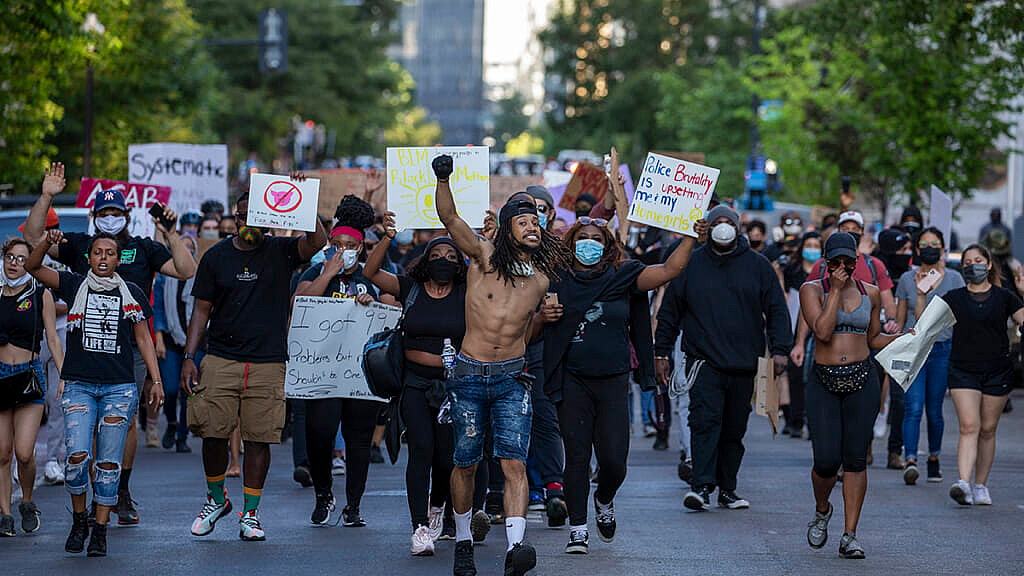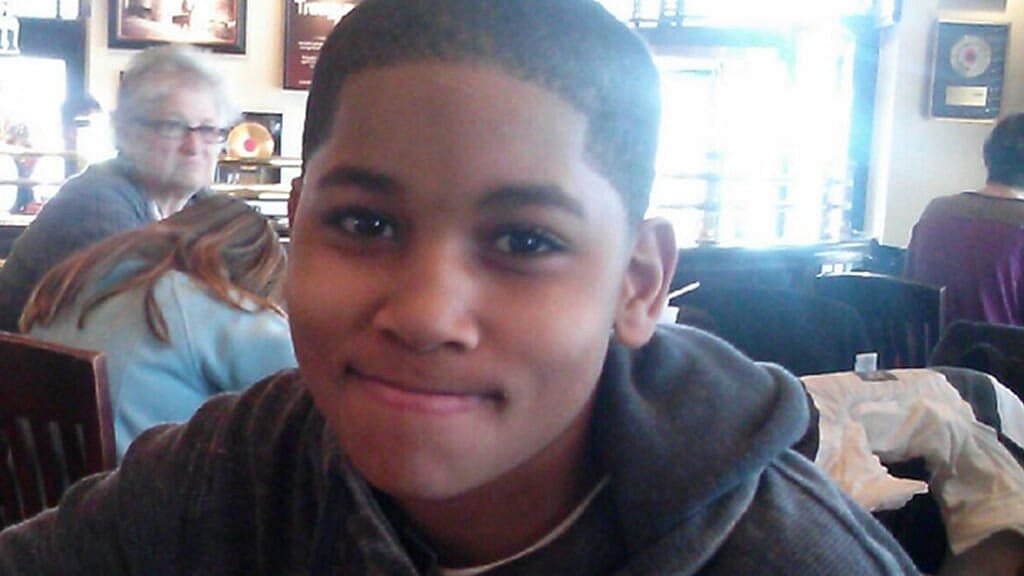Charles Blow states that he is not an activist or a revolutionary, but his second book has a clear activist agenda. It’s in the title and on every page. “The Devil You Know: A Black Power Manifesto” renders an unflinching diagnosis of the ravages of white supremacy and a rousing prescription for Black Americans to eliminate its harms.
The solution is not to eradicate racism in hearts and minds (not necessarily possible) but to render it irrelevant by controlling the levers of power throughout the South and, in doing so, also change the balance of power in the nation.
As a veteran columnist for The New York Times, Blow knows well how to deliver an argument. Building on the vivid, clear prose and bold arguments that are his stock in trade, The Devil You Know is a fast and persuasive piece of political rhetoric and rough American history.
Read More: Barack Obama surprises Black book club, gushes over ‘fashion icon’ wife Michelle Obama

There are three main aspects to the story; two work really well. His narrative is compelling. His prescriptions are big and worthy of consideration. Some of the connective tissue — Blow’s presentation of history and some analysis of the political moment — don’t always have the necessary nuance. That is in part by design.
This is daring work, accessible and easily digested by a wide audience. It is therefore relatively brief at 240 pages including footnotes. It’s argumentation.
“Seize it. Migrate. Move.” Blow is at his most effective when he’s communicating his daring plan. Describing the cities of the North, Midwest, and West, where African Americans flocked during the Great Migration as sites of “perpetual oppression” where Black people constitute a minority with limited political power, proposes that Black people start to reverse that move in a strategic mass migration to the South.
“In effect, Black people could colonize and control the states they would have controlled if they had not fled them,” Blow writes.

With the pivotal role Georgia played in delivering the Senate to Democratic control, that argument looks better and better. He calls those wins of the 2020 election “proof of concept” for his radical proposal. There’s a sense of urgency to it that resonates. One doesn’t often expect a work of nonfiction to be this propulsive and exciting. Even going so far as to call his book “a grand exhortation,” writes Blow.
Read More: New Georgia senators Warnock, Ossoff promise to carry on John Lewis’ legacy
The question before Black America is profound: What could and should Black people do to acquire and maintain the economic and political power — for the many, not just for the few —that the Great Migration failed to secure?
It’s a radical proposal but one with incredible potential. From education to healthcare, to criminal justice, Blow points to the crucial fact that states have the power to set policy and shape lives. The pervasive (if unacknowledged) racism and lack of power Blow ably details are the “push” — the negative circumstances pushing Black people away from the inhospitable former destinations of the Great Migration.

But there are also wonderful, if less tangible psychic, and cultural benefits to having a home in which you’re the majority. Blow calls this the “pull” of his plan — an entire region where Black folks are immune from a white gaze. It’s good for the soul and for health in a variety of ways. Coming from a majority Black country, I feel this in my bones.
Blow’s analysis of historical moments and social forces, however, is not always as strong as his big ideas. A sense of urgency undergirds the entire book. That’s understandable. The entrenched systematic racism endured by African Americans is intolerable. But the book was produced in a bit of a hurry, and at times, it shows.
I found myself wanting more: context, evidence, clearer benchmarks of the data points to support the argument. He also relies on notoriously inaccurate exit polls from an election in 2020, even though that data may be even more flawed than usual. Blow is focused on the bigger picture.
Read More: Voting company sues Fox, Giuliani over election fraud claims
The concern that Blow is building a narrative in part at the expense of careful analysis is also evidenced by how he treats the protests that sprung up in the wake of the killing of George Floyd, eventually dismissing the efficacy of protest movements to create change without acknowledging the wealth of the research on their real impact.
The real story is complicated, but rather than allow that more nuanced take, he hones in on the antiwar movement’s failure to stop Vietnam as support for his blunt assessment that protest doesn’t shape policy. Blow not only downplays the ways protest can effect change, but he also assails the impetus for the protests themselves.
“Social justice Coachella” is a brilliant turn of phrase, but it ignores the fact that group solidarity and political activation are significantly increased by external threat and that political context matters. After years of open hostility to any and all demands for Black liberation, in 2020 the political context was ripe for rebellion.

Blow’s analysis of the public response to the murder of George Floyd as a catalyst for change is a microcosm of the way the book handles evidence — at times privileging a cogent narrative over precision.
Blow is right that the response to the police killing of Floyd was more widespread, and sustained compared to the others even though it eventually disappointed. But he also describes the killing itself as singular in nature: “There had been other killings of unarmed Black people… but this was different. This was depraved. This was disgusting.” He writes that “There was no way to reason it away, to make it appear justifiable. There was no ambiguity.”
This is jarring. The implication that there’s usually more ambiguity in police shootings and that’s why the public hasn’t reacted as strongly is disturbing and not borne out by the historical record. It gives those who devalue Black lives too much credit, and ignores the fact that those who don’t believe Black Lives Matter will always make an excuse no matter how depraved the situation.
One need only recall the killing of 12-year old Tamir Rice in Ohio to know that’s true.

To be clear, Blow knows this territory well. In fact, Blow later recounts meeting with Tamir Rice’s mother and details the killing of Emmett Till in a section on the ravages of racial terror. Everything that was said of the Floyd killing is obviously true of what happened to Till — the depravity, the cruelty, down to the role that visual evidence played in making the killing a rallying point in the Civil Rights movement.
In the Till case, it was a photograph of Emmett’s mother and his ravaged body. But no connection is acknowledged between the Floyd killing and Till in that introduction.
Read More: Emmett Till’s childhood home in Chicago given city landmark status
Blow also makes little time for the Black intellectuals of today. It’s notable that he recounts the ideological divide between W.E.B Du Bois and Booker T. Washington in detail, but demurs from engaging with contemporary Black thinkers and activists. Absent specificity, strawmen and generalizations abound.
Blow repeatedly finds a myriad of ways to dismiss Black intellectuals whom he locates primarily in the destination cities of the North and West: for producing “beautiful mediations” and “blistering orations on the subject of Black liberation” without ever taking action; for what “amounts to sullenness wrapped in sophistry;” for making “poetry of their pain;” for “finding ever-newer phrasings to articulate an old phenomenon;” and for “issuing plaintive missives” to white liberals when “many southern Blacks like myself have given up trying to persuade and explain.”
As for artists, Blow decries respectability politics, yet some of his generalizations about Black art reek of it, while erasing the dynamic work already being done.

Most importantly, there are the critical questions Blow doesn’t acknowledge at all or barely in passing. He describes growing up in a “world shaped by vacancy” in the communities left behind by the Great Migration. It’s poignant and powerful. But what about the re-fracturing of families in the North by a new wave of out-migration to the South? Do we not risk more social dislocation? What happens politically to those cities and states that suddenly have dramatically reduced Black populations and to the balance of power at the federal level?
And yet, despite the contradictions and open questions, both as polemic and as proposal, The Devil You Know is convincing — powerful and enticing arguments buoyed by accessible and pressing prose.
I recommend reading and debating it with a friend. But I’d also urge to include some other books alongside it for context.

Dr. Carole V. Bell is a Jamaican-born writer, researcher, and media and political communication scholar whose work focuses on public opinion and the politics of entertainment. An enthusiastic Tar Heel, Carole earned a Ph.D. in Political Communication from the UNC-Chapel Hill School of Journalism and Media, a Masters in Television and Radio from Brooklyn College, and a B.A. from Harvard University.
Have you subscribed to theGrio’s podcast “Dear Culture”? Download our newest episodes now!
TheGrio is now on Apple TV, Amazon Fire, and Roku. Download theGrio today!


